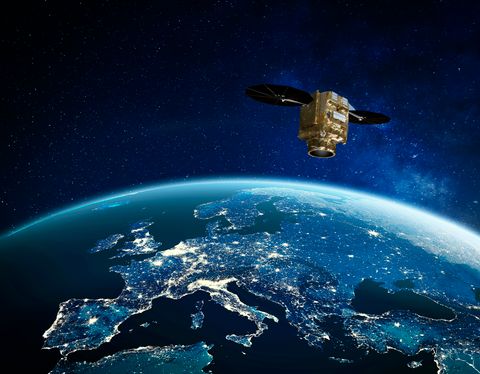Airbus validates the Galileo satellite navigation system’s resistance to data attacks

Europe’s Galileo satellite-based navigation system will become the first to offer increased robustness in face of “spoofing” threats – providing enhanced security against malicious data forging attacks through an authentication mechanism developed and validated with Airbus expertise.
Called the Open Service Navigation Message Authentication (OSNMA), this new service allows Global Navigation Satellite System (GNSS) receivers to verify the authenticity of all transmitted information – ensuring that data is coming from Galileo and has not been modified in a malicious attempt to misguide the user.
Airbus is supporting the EU Agency for the Space Programme (EUSPA) in OSNMA’s service definition, including performance analyses and simulation. The company also has taken the lead for Galileo’s internal OSNMA testing phase – which commenced one year ago using a set of Airbus-identified service configurations. Since 15th November 2021 the OSNMA test signals are publicly available to any Galileo user. Thanks to Airbus developed software the global OSNMA service provision is monitored continuously and NMA data received by any GNSS receiver during the OSNMA test is processed to verify the authenticity of Galileo navigation messages.

Data security for billions of users
To be provided free of charge to any Galileo user worldwide, OSNMA enables a receiver to verify – using cryptography – whether incoming navigation messages truly originate from the GNSS system. It provides the user with keys and message authentication codes, which are processed by the receiver to verify the authenticity of transmitted navigation data.
Following successful completion of the internal testing, a public observation phase has been started – with the OSNMA signal made widely available, allowing receiver manufacturers and application developers to test and prepare their products. User feedback will be gathered as well.
This type of protection is increasingly important as billions of users rely on satellite navigation data across many market segments – including such critical infrastructures as telecommunications networks, power grids, police/fire services and financial trading systems, along with air, maritime and ground transportation.
By definition, satellite-based navigation systems utilise extremely weak signals to broadcast over wireless channels, making their data vulnerable to interference. Even low-power interference can jam or “spoof” (trick) users’ receivers within a radius of several kilometres, creating an attractive target for criminal attacks by terrorists, hackers and others.
Continuing Airbus’ space innovation
Airbus is a global space industry leader in satellite navigation, and provides a full range of capabilities to support the successful implementation of satellite navigation systems.
The company has been actively involved in Galileo system engineering activities for nearly two decades, supporting Europe in Galileo system design, signal definition, system performance analysis, system verification and more recently in the definition and validation of Galileo services and production of the Galileo Second Generation satellites.


